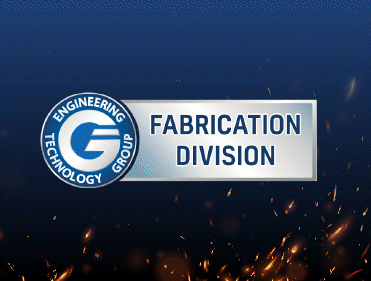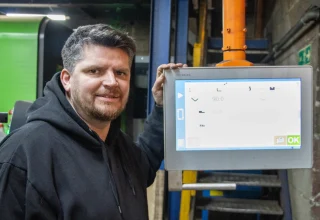
by Mark Kerwin, a mechanical engineer and key account manager at Fractory’s UK headquarters
What is Cloud Manufacturing?
A misunderstood phrase? A debased term? Some kind of clever ordering website which promises click-to-manufacture?
It’s all of the above! And yet, cloud manufacturing is already here. Its uptake is growing. And it will ultimately take over all manufacturing procurement, worldwide.
Cloud manufacturing businesses allow customers to buy manufactured parts directly online, not limiting their orders to one organisation but allowing them to access many capabilities and companies across a wide network. It drives efficiencies, improves productivity and reduces costs. Cloud manufacturing platforms are basically websites where manufacturing resources and capabilities are matched to manufacturing demand in a digital environment.
Is it complicated? No, it’s kind of simple, with engineers able to order their manufactured parts from a website. They upload CAD files or drawings and get instantaneous quotes. It really is simple… Of course, behind the scenes, the work has been deeply complex, especially the efforts of software engineers and mechanical engineers to build these clever digital platforms and to create the supplier networks.
What’s so Good About Cloud Manufacturing?
Cloud manufacturing simplifies everything. It removes countless involved processes from human hands and automates them.
Procurement – the days and weeks on the phone, on email, seeking quotes – becomes quick and easy. Even as that’s being done, manufacturing design is improved, with manufacturability problems ironed out (because quotes cannot be created for parts that are impossible to produce).
The order placed, the cloud manufacturer navigates supply chains, oversees fulfilment, guarantees quality, even deals with (God forbid) reclamations. Machines are better than engineers at navigating supply. And so engineers are freed up to deal with their actual work, to deal with bigger global problems even. For many, this is the sweet spot with cloud manufacturing: giving time back to engineers. (I mean, who knows any engineers who grew up wanting to negotiate with production plants worldwide?)
And for those production plants, for those metal fabrication businesses, cloud manufacturing is hopefully good news too. A cloud manufacturing platform is plugged into its supplier network and can therefore unlock capacity widely, making better use of available resources wherever they are, filling gaps in production cycles.
What are the Objections to Cloud Manufacturing?
Because I’m on the inside, because I’ve swallowed the Kool Aid, these are not my objections! But they are very real.
Some people don’t recognise the issues with the existing set-up. Things are as they are for a reason, they might say. They accept the status quo, and that procurement is a big part of their working lives.
Also, there is a natural reticence to spending a lot of money online on a large unwieldy order, perhaps made up of sequential elements, unusual materials, complex assemblies and ongoing series manufacturing demands. Not so long ago, people wouldn’t buy a large-value item – a sofa or a car, say – online. They do now. But complex and expensive manufactured parts are where those expensive consumer items were at a decade or two ago. So serious cloud manufacturing businesses must accommodate human nature and provide human contact to overcome this caution. It is understandable and necessary. Engineers and engineering companies, when they first use digital services, especially internationally, require human input, ideally from expert engineers. Fractory – the cloud manufacturer I work with – is made up of almost equal numbers of mechanical and software engineers.
Secondly, in truth, the cloud manufacturing platforms cannot always handle each and every order. Those complex requests which engineers want to talk about are often beyond the capabilities of automatic ordering. In some ways that’s ideal for now: the customer wants to deal with a real person and a machine is not up to it anyway! But this is changing. The best cloud manufacturing platforms can handle more and more complexity.
Future Engineers
Cloud manufacturing is increasingly important in a globally distributed manufacturing landscape and across a constantly changing worldwide supply chain. It simplifies and removes complex tasks, freeing engineers from the time-consuming work of traditional drawings as well as reducing their involvement in procurement and fulfilment.
We need more people in engineering. People are not attracted by outdated systems. Digital natives expect much of their work to be built into modern systems. Would-be engineers want to be engineers, not purchasing negotiators. Cloud manufacturing is one way to ensure a future stream of engineering talent.













